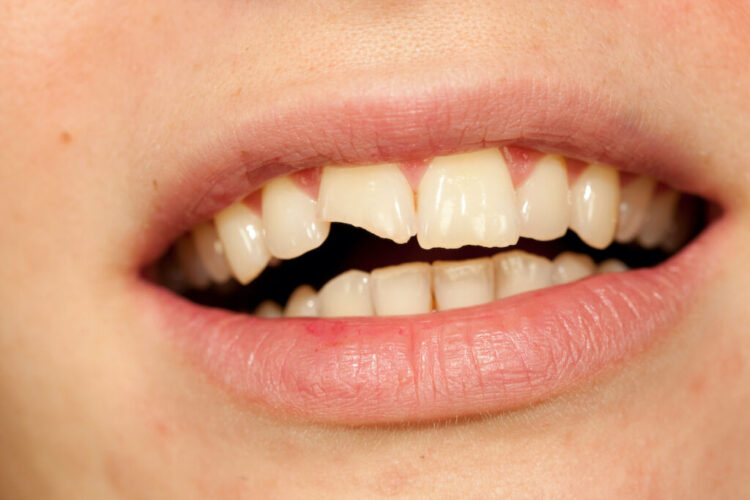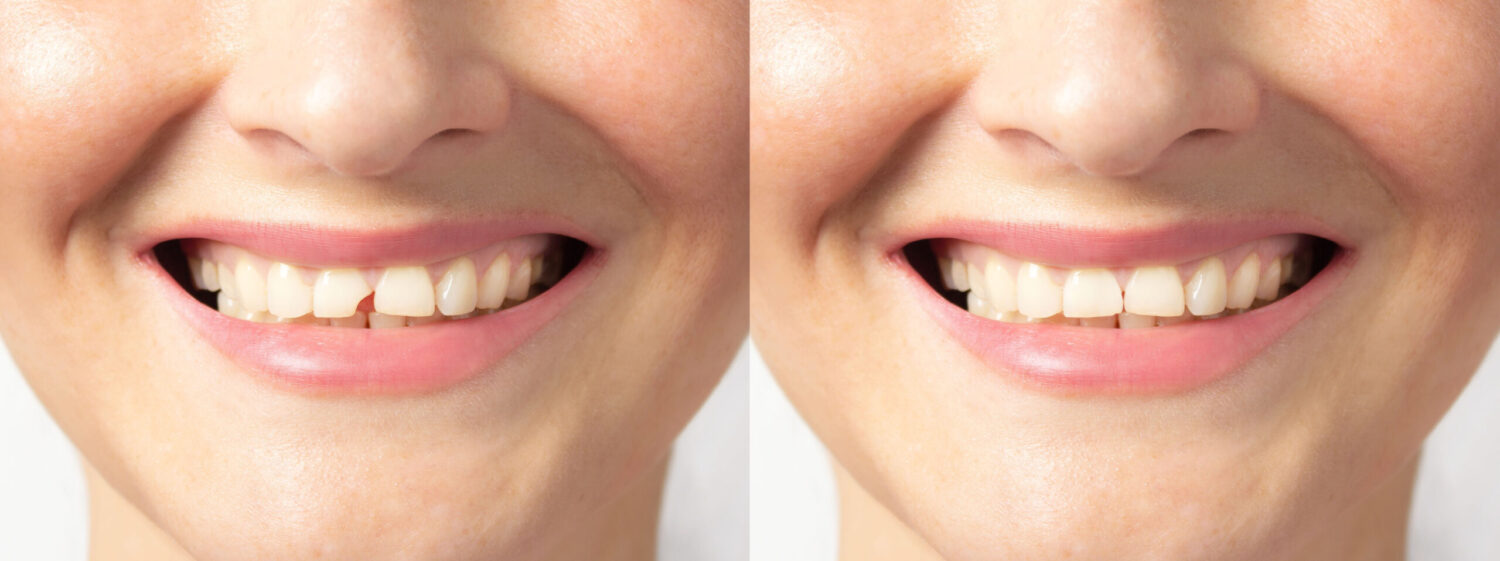Chipping your tooth is the most common dental injury — and it can happen to anyone. You may not even notice a minor chip until you run your tongue along your teeth and feel a sharp, jagged edge. Or you could be panicking after a fall or sports injury causes a major chip. Either way, don’t worry. Your dentists at Hancock and Johnston Dentistry have several options for repairing a chipped tooth.
I Chipped My Tooth, What Now?
If you break or chip your tooth due to a trauma, you should rinse with warm water right away to clean your mouth, then apply pressure to stop any bleeding and a cold compress to keep down swelling. If you can find the broken piece, wrap it in wet gauze to bring to the dentist.
You may also take over-the-counter pain medicine.
However, you may not notice a tooth chip until you look in the mirror or feel it with your tongue. If the chip exposes “live tooth” or dentin, your first clue may be sensitivity to hot and cold when you’re chewing, breathing or drinking.
Once you are aware of your chipped tooth, call your dentist to make an appointment. Chipped teeth aren’t able to repair themselves, so the goal is to keep it from worsening and take away any pain.

What Causes a Chipped Tooth?
A number of things can cause a chipped tooth, from biting into forks to a blow to your jaw while playing sports to chronic wear on your teeth. Here are a few ways you can chip your tooth:
- Injuries to your face or jaw — including falls, accidents and sports injuries
- Chewing or biting on hard foods or objects (apples, olive pits, crab legs, hard candy, ice, forks)
- Nail biting
- Using your teeth to tear open packages
- Teeth grinding (bruxism)
Research shows that the second lower molar is more prone to chipping, likely because of the pressure it endures while chewing. There are several additional risk factors that may make your teeth more prone to chipping than others. These include:
- Cavities, which weaken the tooth
- Poor hygiene, which can lead to damaged enamel
- Eating lots of sugar, which also wears down enamel
- GERD (gastroesophageal reflux disease), which causes stomach acid to backwash into your mouth and wear down enamel
- Dental work or fillings, which helps preserve your teeth but leaves them in a weakened state
- Chronic wear for grinding, clinching or misaligned teeth.
| Did you know? Nearly ⅔ of people with cracked teeth are over 50, according to research published in the Journal of Endodontics |

Chipped Tooth Repair Options
Your options for repairing a chipped tooth are related to the severity of the chip and how deep it affects the anatomy of the tooth.
Minor chips don’t usually cause any problems. In this case, your dentist may simply smooth or polish the tooth to fix it.
Medium chips involve damage to the enamel. Your dentist will likely place a filling, crown or cap to protect the inner layers from infection.
Large chips expose the tooth nerve beyond the enamel to the pulp. You’ll likely feel pain when chewing, and sensitivity to temperature. Your dentist may perform a root canal prior to a filling or crown.
Here is a complete list of all the treatment options your dentist may consider to repair your chipped tooth:
- Polishing: Smoothing a minor chip so that it blends in with your surrounding teeth
- Bonding: Adding composite resin material to fill in minor to medium chips, so your tooth matches your other teeth
- Veneers: Thin cosmetic shell used on minor chips to the front teeth that need more coverage than can be provided by bonding
- Crowns: Tooth-shaped caps that protect a tooth that’s weak; may be needed for medium or large chips
- Fillings: Typically used on minor chips in your back teeth
How to Prevent Chipped Teeth
|
SOURCES: verywellhealth.com, aae.org, myclevelandclinic.org
A Final Word
When you chip a tooth, it may be tempting to delay calling a dentist — especially when you feel little pain or discomfort. But the chip could worsen the longer you wait, so early treatment from your providers at Hancock and Johnston Dentistry is the best way to avoid a big headache later. We take the time to thoroughly examine you for the smallest of chips and come up with custom dental care plans that you’re comfortable with. Contact us to meet our friendly team today!


